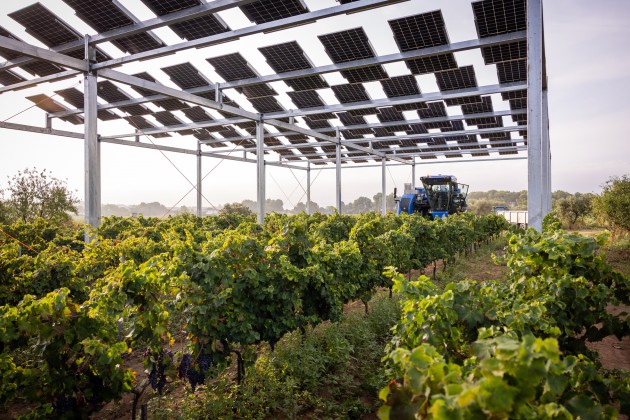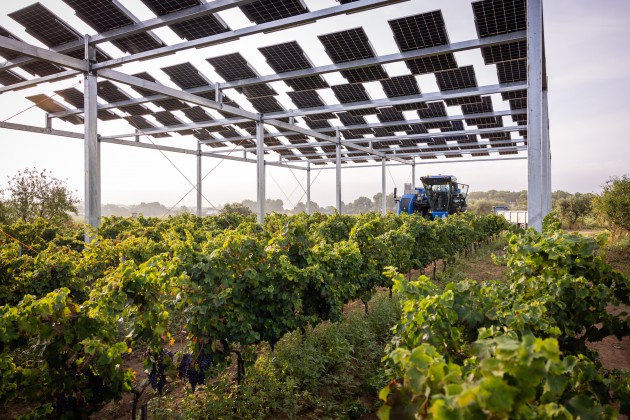Home
News

By Hamish Graham
Published: 22 September, 2025
Spanish wine heavyweight Familia Torres has announced a pilot solar project at one of its vineyards in the Penedès as part of the Solarwine project.
The initiative has seen the company construct an agrivoltaic pergola installation which covers an area of 1000m2, with solar panels elevated 5 metres above the ground.
Located at the Mas Rabell vineyard in in Sant Martí Sarroca, the pilot seeks to assess the technical and economic viability of integrating agriculture and solar energy, evaluate its microclimate effects as well as analyse its impact on vineyard productivity and resilience in the context of global warming.
The height of the pergola allows harvesting machines to pass beneath. Additionally, the project has seen the installation of two types of solar panels – opaque and semi-transparent bifacial panels. This will allow Familia Torres to evaluate the comparative effect of both on crop development and energy yield.
The energy generated will be used at the Torres Brandy ageing cellars and the Familia Torres restaurant, Mas Rabell, located close to the vineyard.
The installation is one of two initiatives that form a part of the Solarwine project, the other being conducted in Castilla-La Mancha. The overall project has a budget of over €700,000, with funding close to €600,000. Solarwine forms a part of the EU’s Strategic Plan of the Common Agricultural Policy (CAP) 2023-2027, financed by the Spanish Government’s Ministerio de Agricultura, Pesca y Alimentación (MAPA) and the European Agricultural Fund for Rural Development (EAFRD).
Director of innovation and knowledge at Familia Torres, Mireia Torres, believes the project can aid in the wine producer’s sustainability mission.
She commented: “This project enables us to explore new ways to adapt to climate change and to make agricultural production compatible with clean energy generation, thus moving towards a more sustainable, resilient, and profitable viticulture.
“The increase in temperatures is causing harvests to be brought forward, which could affect wine quality. Our aim is to delay grape ripening. The panels above the vineyard provide shade for the vines and protect them from direct sunlight during the summer, while also generating electricity.”
Other articles of interest


Dining and Cooking